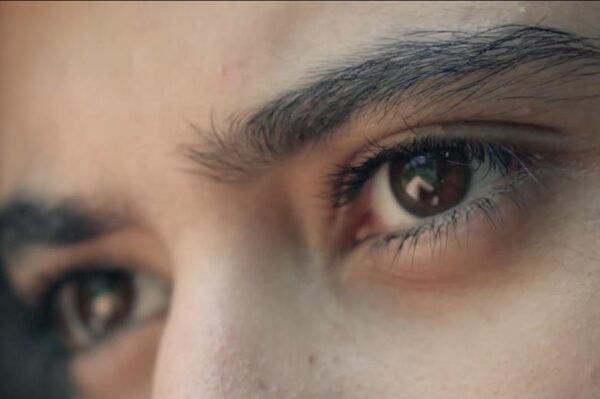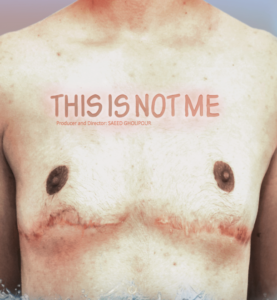
“I don’t want to be free of you. I want you to be free.” cries Shervin Ramezan’s sympathetic father as the family discusses the possibility of 16-year-old Shervin moving abroad to transition to a man in a more hospitable environment than Iran. Saeed Gholipour’s moving documentary, This Is Not Me, follows Shervin and fellow trans man, Saman Ghazian, 27, for three years as they navigate the complex, and often inhumane, journey of transitioning in Iran.
 Transgender rights in Iran are limited. Trans people are recognized by the government as long as they undergo gender reassignment surgery, for which some official funding is available, as well as new identity documents post-surgery. The process is, however, long and invasive, and includes virginity checks, formal parental and community elder approval, psychological counseling and inspection by the Family court. The quality of pre- and post-surgery healthcare, as well as the surgery itself, is often very low. Trans people are also officially considered to have a mental disorder and are often subject to electric shock treatment and/or powerful psychotic medication.
Transgender rights in Iran are limited. Trans people are recognized by the government as long as they undergo gender reassignment surgery, for which some official funding is available, as well as new identity documents post-surgery. The process is, however, long and invasive, and includes virginity checks, formal parental and community elder approval, psychological counseling and inspection by the Family court. The quality of pre- and post-surgery healthcare, as well as the surgery itself, is often very low. Trans people are also officially considered to have a mental disorder and are often subject to electric shock treatment and/or powerful psychotic medication.
It’s against this backdrop that Shervin and Saeed steer themselves toward full transitions to men. Both trans-men are lucky in that they have supportive families who are on the journey with them. Shervin’s father, in particular, is a shining example of how to parent a trans child. Most trans people in Iran are not so lucky and this, coupled with a brutally transphobic society, means that around 40% of trans people in Iran attempt suicide at some point in their lives. Shervin and Saeed both, however, have admirable inner strength, and feisty attitudes and will not take no for an answer. This is needed as they both jump through hoop after hoop to get to where they need to be. Gholipour’s documentary also offers a fascinating insight into normal daily life in Iran as well as the route to gender reassignment surgery. Iranian beach life, family life, friendships, shops, medical and police appointments – all are captured on film – often only on an iPhone, and sometimes a hidden iPhone at that. There’s no narration, just subtitled conversations in different settings, and we’re often not sure what exactly is going on, but stick with it, as everything becomes clearer as the film progresses. An excellent soundtrack complements this very thought-provoking documentary.
PS To find out where/when this film is screening https://www.facebook.com/venerafilms
Queerguru’s Contributing Editor Ris Fatah is a successful fashion/luxury business consultant (when he can be bothered) who divides and wastes his time between London and Ibiza. He is a lover of all things queer, feminist, and human rights in general. @ris.fatah

